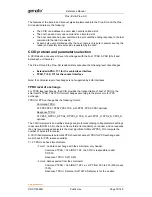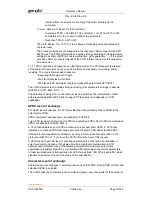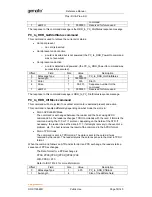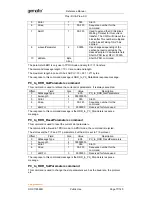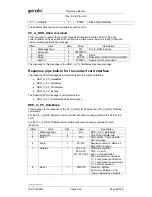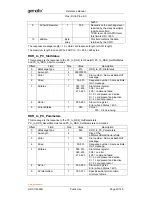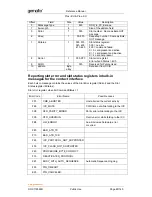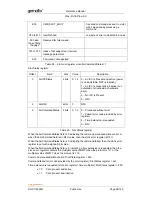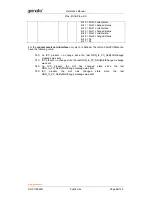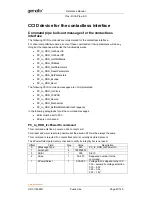
Reference Manual
Prox–DU & Prox–SU
www.gemalto.com
DOC118569D
Public Use
Page 73/145
received from the smart card or empty if the smart card rejects the
command.
- Form 3, data are to be sent to the smart card:
Command TPDU = CLA INS P1 P2 Lc Data(Lc), Lc=P3 from 01h to FFh
and Data(Lc) for the Lc data to send to the smart card.
Response TPDU = SW1 SW2
The CCID device, for T=0 TPDU, is in charge of managing procedure bytes and
character level.
The procedure bytes are not mapped into the response TPDU except for the SW1
SW2 bytes. The CCID implements and verifies timings according to its parameters
settings to assume ISO7816-3 (work waiting time, extra guard time …). If the smart
card uses NULL procedure byte (60h) the CCID informs the host of this request for
time extension.
T = 1 TPDU command and response use the frame format. The CCID expects the respect
of the character frame. But no check on frame format is mandatory on sending, and on
receiving. The only recommended checks are:
- Expecting LEN byte as third byte
- Wait for LEN bytes as INF field
- Wait for an EDC field which length complies with parameter bmTCCKST1
The CCID implements and verifies timing according to its parameters settings to assume
ISO7816-3 (CWT, BWT, BGT …).
The detection of parity error on character received is optional. The interpretation of first
bytes received as NAD and PCB to manage VPP is optional and depends on CCID
capabilities.
APDU level of exchange
For APDU level exchanges, the CCID provides the transportation of host’s APDU to the
smart card’s TPDU.
APDU commands and responses are defined in ISO7816-4.
Two APDU levels are defined, short APDU and extended APDU. Short APDU and extended
APDU are defined in ISO/IEC 7816-4
A CCID that indicates a short APDU exchange only accepts short APDU. A CCID that
indicates an extended APDU exchange accepts both short APDU and extended APDU.
If the smart card requests time extension, by using a NULL procedure byte (60h) in T=0
protocol or S(WTX) in T=1 protocol, the CCID informs the host of this request.
A CCID supporting APDU level of exchanges implements a high level of automatism in
smart card communications. It shall also provide a high level of automatism in ATR
treatment and implement one of the following automatisms: automatic parameters
negotiation (proprietary algorithm), or automatic PPS according to the current parameters.
At least two standards of transportation for APDU are defined, ISO 7816-4 and EMV, which
standard to implement is out of the scope of this specification.
Character level of exchange
Character level of exchanges is selected when none of the TPDU, Short APDU or Short and
extended APDU is selected.
The CCID sends the characters in the command (maybe none) then waits for the number of
Содержание Prox-DU
Страница 4: ......














